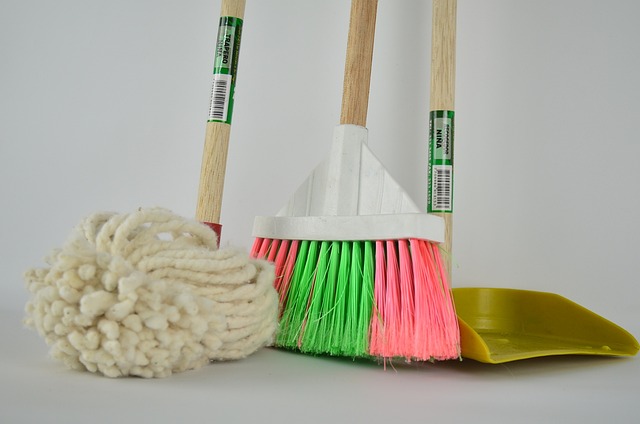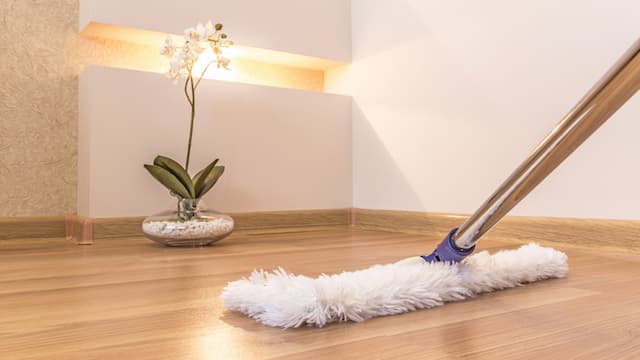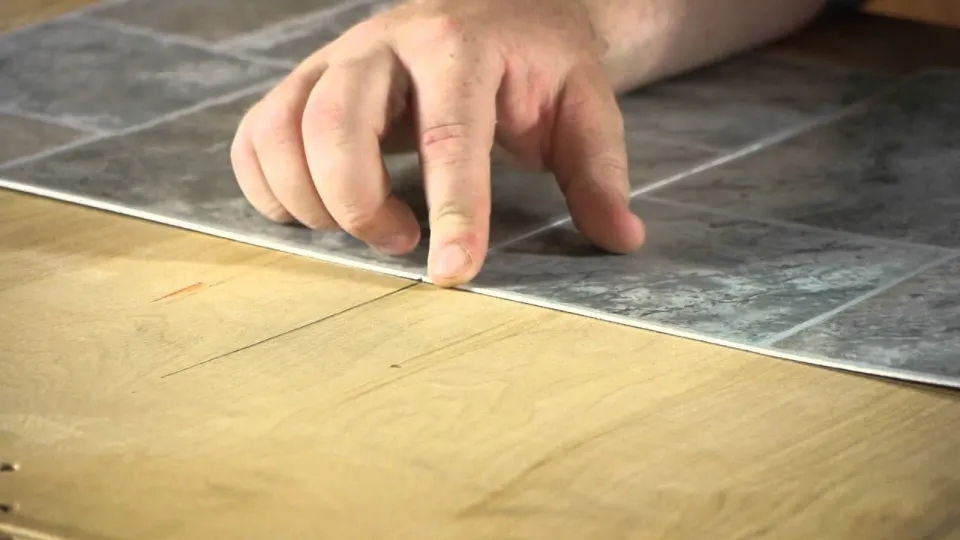Keeping your home in tip-top shape can be a struggle, and sometimes it’s hard to know how often should you mop your floors—especially when it comes to your floors.
Heavy traffic areas require the most frequent sweeps. For most homes, the foyer, kitchen, bathroom, and hallways are the most heavily trafficked areas. Once a week, wipe down high-traffic areas of your home with a wet mop.
Rooms in your home that are not used often, such as the guest room, do not need to be cleaned weekly. Ideally, you should wipe once every two weeks or once a month.
We consulted an expert to get their opinion on how frequently you should actually mop your floors, the best mopping techniques, and what to look for when choosing a good mop. Their responses are provided below.
How Often Should You Mop Your Floors?
Areas with a lot of traffic require the most frequent mopping. The foyer, kitchen, restrooms, and hallways see the most traffic for the majority of families. Every week, wet mop any areas of your home that receive a lot of traffic.
Not frequently used rooms in your house, like a guest room, don’t require weekly mopping. Ideally, you should mop once every two weeks or once a month.
Exceptions
Naturally, there are some exceptions. Having dogs may necessitate more frequent mopping in order to remove muddy paw prints. Your eat-in kitchen may need to have the food debris cleaned up if several kids frequent it frequently. In any unique situations like these, mop as frequently as necessary.

How to Mop Your Floors?
You’ll need a bucket, a mild cleaner, rubber gloves, a nylon scrub pad, and a sponge or string mop when it’s time to wet mop your floors. Follow these general steps:
- To remove large particles, vacuum or sweep the area.
- Before mopping, wipe up any wet areas of the floor, such as still-wet muddy footprints.
- Fill a bucket with warm water and a small amount of floor cleaner.
- To avoid having to walk on freshly mopped surfaces, start at the far corner of the room and move closer to the door.
- The mop should be submerged in the bucket and then wrung out. A very wet mop is not what you want. The areas you mop ought to dry quickly.
- Start at the wall, move to the center of the room, then head for the exit by using back and forth motions. Each area should be covered twice.
- Use a nylon pad to manually erase any scuff marks you come across.
- To continue mopping, wring out the mop after each few passes and rinse it in the bucket.
- When mopping, change the water if it becomes murky. Avoid re-covering the floor in dirt.
- To remove any remaining cleaning agents from the floor, mop it once more with clear water and no detergent.
Tips for Extending Time Between Mop Sessions
Before mopping, make sure you regularly sweep or vacuum the floor. “This will help to ensure that your floors are clean and free of any debris that could potentially damage your flooring,” explains Leiva. “Pick up any hair, crumbs, etc., as soon as you see them—this will help to keep your floors looking clean and tidy.”
As soon as a drip occurs, wipe it up to help keep your floors from getting wet. “Keep two doormats per entrance—one outside your door and one inside as a double layer of protection against unwanted debris,” explains Leiva. “Your floors will remain spotless and dust-free as a result.”

Why You Should Mop Your Floors?
As a result of visible dirt and debris, most people regularly clean their floors. Even by simply walking on a floor, you can tell how filthy it is. But there are other reasons why you’d want professional cleaners to make sure they mop the floors.
- It’s an effective way to clean them. There are lots of germs on floors. After all, a variety of things are frequently exposed to these surfaces. Dirt from the outside is tracked in. Hair, dropped food, and spills are additional factors to take into account. Especially during the flu season, germs can quickly accumulate on this surface. Maintaining a clean floor helps keep your family healthy.
- fewer allergic reactions will affect you. On floors, there is also an accumulation of dust, pet dander, and other allergens. The accumulation of allergens will be lessened by routine mopping.
- It prevents scratches on your flooring.A good cleaning services company always uses the right cleaner for this surface. It’s among the best methods for keeping its sheen. Additionally, it shields surfaces from scratches brought on by tiny particles.
- Your house looks lovely after a good mop.Nothing compares to a spotless floor. Your house seems welcoming and well-kept. Offices and commercial spaces benefit from having a mopped floor as well. Consider how gleaming the floors are in a hotel or upscale shopping center. It has a more elegant feel with regular mopping.
Read about How to Make Hardwood Floors Shine?
What to Look for When Purchasing a New Mop
Many people use disposable mop pads. Since they must be used only once, they are not very cost-effective. They harm the environment as well.
We advise using microfiber mop pads instead. Your hard surface flooring will look spotless and be free of streaks thanks to the microfiber’s excellent dirt-picking and holding capabilities. Using plain water or a floor cleaner made for floors will both work effectively.
So, How Often Should You Mop?
You are aware of the benefits of mopping now. But do you know how often you should mop your floors? Ask any professional cleaning company and they’ll tell you it would depend on the location. If you have the time and desire, you can mop the floor every day. However, having those two qualities is uncommon.
The best you can do is mop heavily used areas once a week. Bathrooms and kitchens see a lot of daily traffic. Entryways and hallways also do. Every other week, you can mop less-frequented areas. If you mop a guest room or conference room once or twice a month, nothing will be lost. However, these areas need to be vacuumed at least once per week. Before it accumulates, you should remove the dust.
To this rule, there are some exceptions. You might have to instruct the cleaners to mop every day if you have pets or children. Mud tracking by dogs is a well-known problem. Children are just as bad, and they frequently spill food. That should be cleared up right away.



